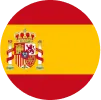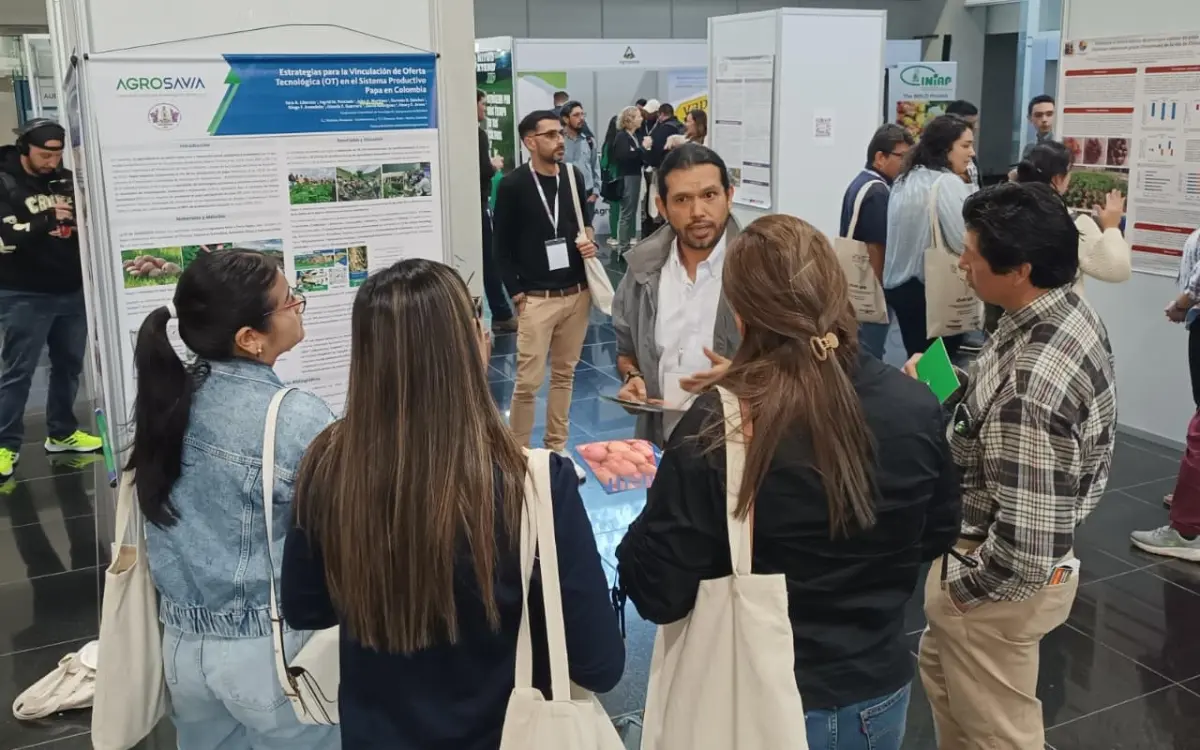- Outstanding participation of AGROSAVIA’s researchers at the XXX Latin American Potato Congress and XI Ecuadorian Potato Congress
The representation team was led by AGROSAVIA’s Roots and Tubers Network, which delegated researchers from the Obonuco, Tibaitatá, and La Selva Research Centers, as well as from the Central Headquarters.
Taking advantage of the researchers’ presence in Ecuador, on July 28, prior to the congress, the V Workshop of the Latin American Cooperation Network on the study of late blight and other diseases in solanaceous crops, including purple top, was held; in this workshop, AGROSAVIA’s researchers played a leading role. AGROSAVIA was in charge of presenting the following topics: “Evaluation of commercial potato varieties against late blight attack,” by David Rodríguez; “Phytosanitary problems in potato cultivation in Colombia and research advances,” presented by John Martínez; and “Purple top in Colombia and strategies for its management and prevention,” by Juan Vicente Romero.
As part of the congress, the symposium “Roots of Equity: Women who cultivate science, innovation, and entrepreneurship in the potato sector” was held, in which AGROSAVIA’s researcher, Olga Yanet Pérez, stood out as a panelist.
Let’s briefly review the significance of these events: it is essential to know that potatoes are the third most important crop in the world in terms of human nutrition, after rice and wheat. More than 20 million hectares are planted worldwide, producing 390 million tons. One billion three hundred million people, especially in developing countries, consume potatoes as a staple food. This tuber has high nutritional content, can be cultivated from sea level to altitudes above 4,000 meters, adapts to marginal environments, and has high productivity.
In recognition of the importance of this crop, and under the slogan “Potato: Food Security, Resilience, and Economy,” the National Institute for Agricultural Research (INIAP, Ecuador, for its Spanish acronym), the International Potato Center (CIP, for its Spanish acronym), the Latin American Potato Association (ALAP, for its Spanish acronym), the Association of Potato Producers (AGROPAPA), and AGN Latam organized the XXX Congress of the Latin American Potato Association and the XI Ecuadorian Potato Congress, held from July 29 to August 1 in Quito, Ecuador.
The purpose of this congress was to highlight the strategic importance of potatoes in food security, their resilience to climate change, and their high impact on the rural economy of producing regions.
Likewise, one of the most relevant outcomes of this event for Colombia is the exchange of knowledge, experiences, and innovations among actors in the agri-food system at regional and global levels. Two hundred thirty-two people from 14 countries participated in the congress.
The participation of Colombian researchers in the congress is crucial so that the “potato team” can: update and deepen their technical and scientific knowledge on current challenges in potato cultivation in Latin America, including plant health, climate change, genetic breeding, food security, and resilient production models; strengthen technical cooperation networks with leading institutions such as CIP, INIAP, and other Latin American entities, which will facilitate future synergies for research and technological development projects; and share and contrast AGROSAVIA’s experiences, particularly progress made in pre-basic seed production, aeroponics, germplasm management, and work with rural communities, in a regional dialogue space that enriches our institutional action lines.
These exchanges contribute to building common regional agendas within the framework of the event’s slogan “Potato: Food Security, Resilience, and Economy,” aligned with the mission objectives of AGROSAVIA and the Ministry of Agriculture and Rural Development (MADR). Furthermore, attending this congress not only strengthens the capacities of the Roots and Tubers Network but also represents a key opportunity for the work team and the corporation as a whole to position their technical capabilities, establish strategic alliances, and contribute to the global challenges of potato cultivation from a relevant scientific and territorial perspective.
At the congress, knowledge was shared and enriched on crucial potato-related topics required by producers in the current crisis of the sector, such as the purple top disease, seed production, climate change, and technology transfer.
The outcome for Colombia during the congress is that AGROSAVIA presented 17 of the 78 works as posters, in addition to the lectures and presentations already mentioned. This participation is proof of the good work AGROSAVIA and its researchers are doing to provide solutions to the problems that farmers face every day, and, in this specific case, to those faced by potato producers.
- More information here:
- Jorge Sarasty Petrel
- Communications, Identity and Corporate Relations Professional
- Research Center Nataima
- Communications, Identity and Corporate Relations Advisory Office
- jsarasty@agrosavia.co
- AGROSAVIA





